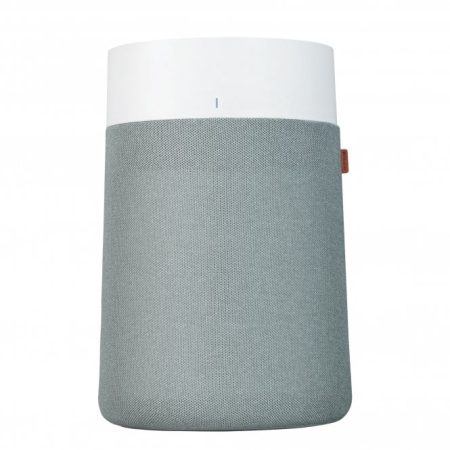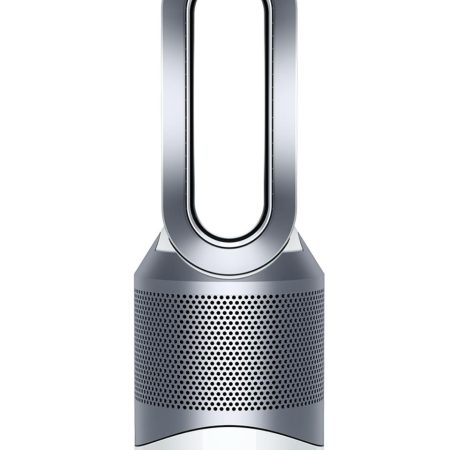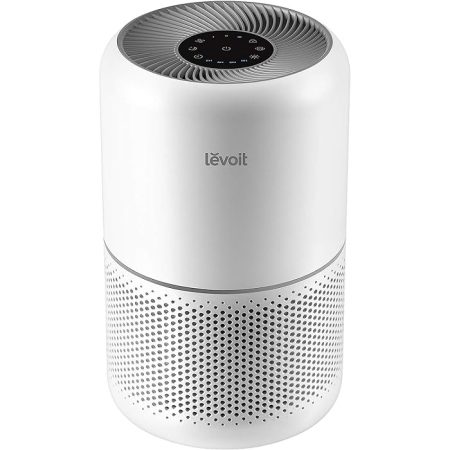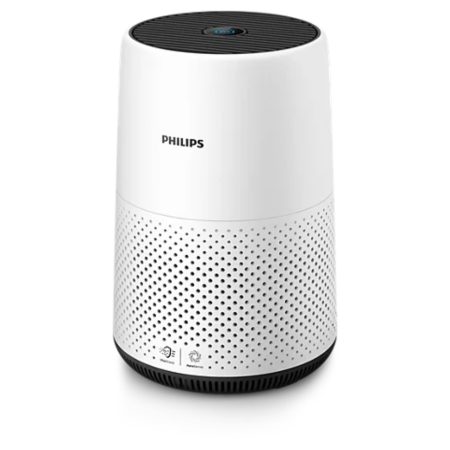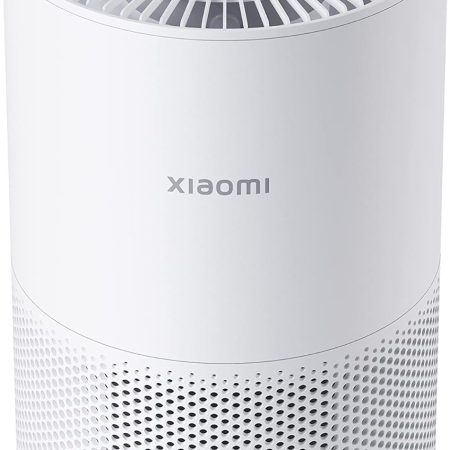Explore Premium Air Purifiers
When contemplating the acquisition of an air purifier, it's imperative to place your unique needs and prerequisites at the forefront. First and foremost, take into account the dimensions of the room or space where you intend to employ the air purifier, as distinct models cater to different room sizes. Seek out an air purifier endowed with a commendable Clean Air Delivery Rate (CADR) that aligns with your room's proportions for supreme performance. Air Purifiers predominantly function by purifying the air, eliminating contaminants, allergens, and toxins. They stand in stark contrast to essential oil diffusers and humidifiers, which contribute pollutants to the indoor atmosphere. An integrated filter replacement indicator keeps you apprised of when it's time for a filter replacement. It's important to note that air purifiers do not introduce moisture into the air. Neglecting air quality can lead to an array of health issues. The quandary is especially pronounced in urban locales, where recent statistics from the Mayor of London's office indicate that 4,000 individuals succumb to air pollution-related causes in the capital every year. Lamentably, poor outdoor air quality can translate into poor indoor air quality. Inhaling minuscule particulate matter can wreak havoc on your respiratory system and other vital organs. Air Purifiers predominantly function by sanitizing the air, which can be tainted with contaminants, allergens, and toxins. They stand in contrast to essential oil diffusers and humidifiers, which introduce pollutants to the indoor environment. An integrated filter replacement indicator ensures you are aware of the optimum time to replace the filter. It's worth noting that air purifiers do not add moisture to the air.Understanding the Power Consumption of an Air Purifier
The smaller models, ideal for bedrooms and studies, can be acquired for as little as £50. However, more robust units capable of purifying the air in a spacious kitchen or living area can have a price tag of up to £300. Reputable brands to consider include BlueAir, AEG, Meaco, Dyson, and Briiv. Keep in mind prospective operating costs, particularly if the air purifier offers heating, cooling, and dehumidifying functionalities, as these can substantially increase energy consumption.Exploring the Different Types of Air Purifiers
Invest in a Natural Air Purifier with Triple Filters
Discover the 3-in-1 Air Purifier by Philips
The Philips 3-in-1 air purifier not only purifies your air but also doubles as an electric fan heater. Its HEPA filter boasts an impressive 99.95% effectiveness in eliminating pollutants, allergens, and viruses from your space. Additionally, the bladeless fan features wide oscillation, ensuring the circulation of clean air. The fan offers two settings: a high-speed mode for warmth during the winter and a rapid cooling mode for the summer.Shop Now for the Exceptional Dyson Purifier Cool + Humidify Auto-Act
Unlike dehumidifiers, which extract moisture from the air to prevent condensation and mold growth, a humidifier adds moisture to the air. Inadequate humidity levels can exacerbate cold and flu symptoms, leading to dry skin, dry eyes, and parched sinuses.Acquire the Top Air Purifier from Devola
This innovative model from one of the UK's fastest-growing heating and cooling companies stands just over a foot tall and is designed for conservatories or smaller rooms. Featuring a grade-13 HEPA filter, the same grade as the Dyson mentioned earlier, it eradicates 99.9% of hazardous airborne particles. The carbon filter neutralizes unpleasant odors, ensuring the air in the room remains fresh. Nick Kandola, an air purification specialist at Aircon Centre, highly recommends this model.Order the Outstanding Air Purifier AEG AX7
Procure the Professional Clean Meaco CA-Hepa
You can easily manage this reasonably priced air purifier via a dedicated smartphone app. This allows you to direct the purification process remotely, ensuring that the air is purified before you return home. This feature is particularly beneficial for individuals with allergies or asthma, as it allows you to filter the air in advance of your arrival without the need for continuous operation.Shop the Superior Shark 6 HE600K Air Purifier
The HE600K is a more economical model from Shark, designed for smaller spaces. However, it boasts six potent air-purifying fans, making it the ideal choice for larger rooms. The signature feature is the odor filter, constructed with activated carbon pellets that effectively trap volatile organic compounds and pet odors.Purchase the Essential Features in a Home Air Purifier
Ensure that your chosen air purifier offers protection against bacteria and viruses, a crucial feature in the current climate. Additionally, look for other essential aspects such as HEPA filters, replaceable components, allergen removal, mold reduction, odor elimination, protection against VOCs, and proven technology. Air purifiers, also known as air cleaners, are sophisticated devices meticulously crafted to enhance indoor air quality by eradicating airborne particles, allergens, pollutants, and contaminants. They come in an assortment of types, each tailor-made to address specific air quality concerns. The following section provides an in-depth overview of different air purifier categories:Obtain the Best HEPA Air Purifiers
High-Efficiency Particulate Air (HEPA) purifiers are among the most prevalent and effective variants. They deploy HEPA filters, specifically engineered to capture a staggering 99.97% of particles as minuscule as 0.3 microns. This includes dust, pollen, pet dander, mold spores, and even certain bacteria and viruses. HEPA air purifiers are particularly advantageous for allergy sufferers and individuals seeking an overall enhancement in air quality.Add Activated Carbon Air Purifiers to Your Cart
Activated carbon or charcoal filters are employed in air purifiers to adsorb gases, odors, and volatile organic compounds (VOCs). These filters excel in eliminating lingering scents from cooking, pets, and tobacco smoke by chemically binding odor molecules to the carbon surface. However, they may not be as efficient at eliminating airborne particles.Discover the Best UV-C Air Purifiers
UV-C air purifiers harness the power of UV-C light to exterminate or deactivate airborne microorganisms like bacteria, viruses, and mold spores. These purifiers are often coupled with additional filtration mechanisms to address both particles and microorganisms. UV-C purifiers are widely adopted in healthcare settings and can be a prudent choice for individuals concerned about the spread of infectious diseases.Opt for Premium Ionic or Electrostatic Air Purifiers
Ionic or electrostatic air purifiers generate negatively charged ions that adhere to airborne particles, rendering them heavier and causing them to descend to the ground or adhere to a positively charged collector plate. While they can be efficacious in capturing particles, it's worth noting that some of these purifiers may generate ozone as a byproduct, which could act as a respiratory irritant. Consequently, exercise caution when selecting this type of air purifier.Consider Ozone Generators
Ozone generators intentionally produce ozone (O3) to react with and neutralize indoor air pollutants. While effective at breaking down odors and certain chemicals, ozone generators are generally not recommended for residential use due to potential health risks associated with ozone exposure. They should only be utilized in unoccupied spaces.Explore Premium Electronic Air Purifiers
Electronic air purifiers employ a combination of technologies, including electronic charging and collection plates, to capture particles from the air. They are often adept at trapping fine particles but may necessitate regular maintenance to clean the collection plates.Shop for Photochemical Oxidation (PCO) Air Purifiers
PCO air purifiers utilize ultraviolet light and a catalyst to disintegrate volatile organic compounds (VOCs) and odors at a molecular level. They can be effective in eliminating specific volatile organic compounds, although their performance may hinge on the particular catalyst employed.Invest in Whole-House Air Purifiers
Whole-house or central air purifiers are seamlessly integrated into HVAC systems to treat the air throughout an entire residence. These systems frequently incorporate HEPA filters, UV-C lamps, or other technologies to enhance indoor air quality on a broader scale. They offer sustained filtration and are ideal for individuals seeking comprehensive air purification.Choose the Best Value Portable Air Purifiers
Portable air purifiers are self-contained units that can be placed in specific rooms to address localized air quality issues. They are versatile and suitable for bedrooms, living areas, offices, and other compact spaces.Notable Features of Air Purifiers
- Filtration Technology: Air purifiers leverage diverse filter types to capture and eliminate airborne particles. Common filtration technologies encompass HEPA (High-Efficiency Particulate Air), activated carbon, UV-C (Ultraviolet-C) light, and more.
- Filter Replacement Indicators: Numerous air purifiers incorporate filter replacement indicators that alert users when it's time to replace filters, ensuring the purifier's ongoing efficiency.
- Variable Speed Settings: Air purifiers often boast adjustable fan speed settings, enabling users to regulate the air purification rate. Higher speeds are suitable for rapid purification, while lower speeds offer quieter operation, ideal for nighttime use.
- Timer Function: Some models are equipped with timer functions, permitting users to schedule when the air purifier operates. This feature optimizes energy usage and ensures air purification at designated intervals.
- Remote Control: Remote controls empower users to modify settings and manage the air purifier from a distance, adding convenience to the user experience.
- Air Quality Sensors: Advanced air purifiers may integrate sensors that continuously monitor air quality and automatically adjust purification settings as necessary, thereby maintaining optimal indoor air quality.
Advantages of Air Purifiers
- Enhanced Air Quality: Air purifiers proficiently eliminate particles like dust, pollen, pet dander, and smoke, leading to cleaner, fresher indoor air.
- Allergy and Asthma Relief: Air purifiers featuring HEPA filters are particularly beneficial for individuals with allergies and asthma, as they capture allergens that can trigger symptoms.
- Odor and Chemical Neutralization: Activated carbon filters in air purifiers effectively absorb odors, gases, and volatile organic compounds (VOCs) stemming from cooking, pets, and household products.
- Respiratory Well-Being: Air purifiers contribute to improved respiratory health by reducing exposure to pollutants, which can lead to better breathing and overall health for those with respiratory conditions.
- Peace of Mind: Air purifiers bestow peace of mind, providing assurance that the air you and your loved ones breathe is cleaner and healthier.
Safety Considerations
- Strategic Placement: Position the air purifier in a location that ensures access to ambient air and allows for effective air circulation. Avoid obstructing air intake or exhaust vents.
- Filter Replacement: Adhere to the manufacturer's recommendations regarding the regular replacement of air purifier filters to uphold optimal performance and prevent the proliferation of mold or bacteria on soiled filters.
- Unit Maintenance: Conduct periodic cleaning of the exterior and interior of the air purifier, encompassing the fan and vents, to avert the accumulation of dust and maintain efficiency.
- Safety Certifications: Opt for air purifiers that have undergone testing and certification by esteemed safety organizations such as UL (Underwriters Laboratories) or AHAM (Association of Home Appliance Manufacturers).
- Ozone Emission: Steer clear of air purifiers that emit ozone, as ozone can serve as a respiratory irritant and is not suitable for residential use.
- Child and Pet Safety: Keep air purifiers out of the reach of children and pets to prevent inadvertent tampering or ingestion of small components.
- Electrical Safety: Ensure that the air purifier is adequately grounded and connected to a dedicated electrical outlet. Avoid the use of extension cords or power strips unless explicitly endorsed by the manufacturer.



